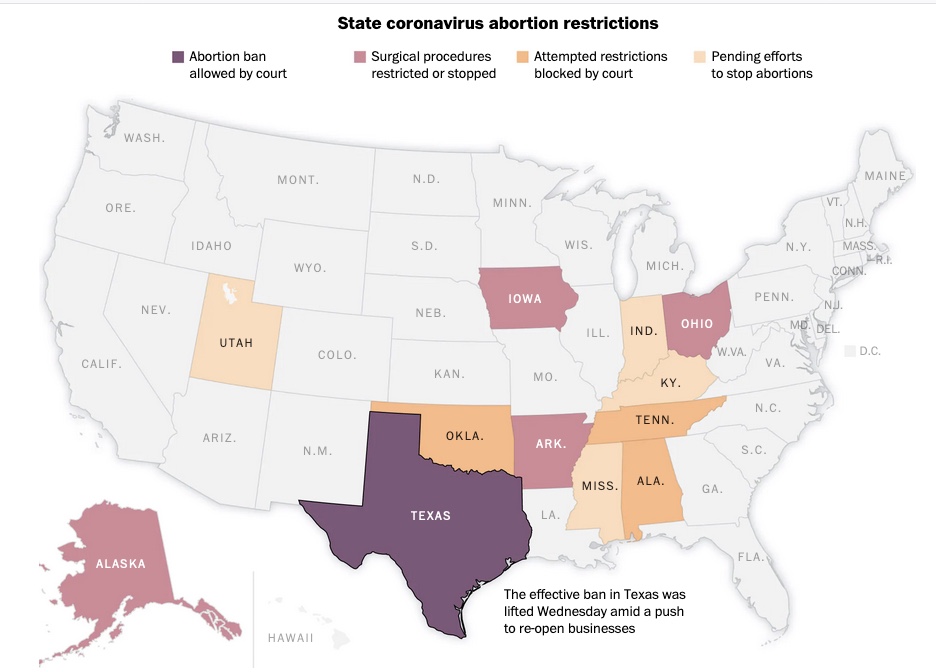There were already women in the waiting room when the clinic’s lawyers called to deliver the news: Until further notice, abortion was illegal in Texas.
They’d been hoping to find some way around Monday’s executive order, but Texas Attorney General Ken Paxton had been clear, the lawyers told Kathy Kleinfeld, the administrator at Houston Women’s Reproductive Services: To better combat coronavirus, doctors “must immediately stop” performing procedures deemed “medically unnecessary,” including abortion.
Kleinfeld began calling the women to the back of the clinic, one by one. She saw 20 patients throughout the day, all coming in either to take their abortion pill, or have the initial consultation required by the state of Texas. Most hadn’t heard anything about the ban.
“We had women pleading, saying, ‘Please, please give us the pill,’ saying they promised they wouldn’t tell anyone, trying to bargain with us.’”
Some women cried, Kleinfeld said. One told her that she was in a violent relationship.
“She said, ‘You don’t understand. If he finds out about this … he cannot know.’”
n an effort to reallocate medical resources to coronavirus, the Centers for Disease Control and Prevention announced last week that all nonessential and elective medical procedures should be postponed indefinitely. While the CDC pointed to a few examples — carpal tunnel release, cataract surgery, colonoscopy — they did not release an exhaustive list, leaving room for states to make their own interpretations.
On Friday, Ohio became the first state to explicitly include abortion on a list of “nonessential” procedures, announcing a temporary ban on abortions in the state, starting Wednesday. Texas and Mississippi made similar announcements on Sunday and Tuesday, respectively, with other states likely to follow soon.
“The truth is, abortion, for the most part, is an elective procedure that can be done later,” Paxton said Wednesday during a Facebook Live interview.
Abortion providers have scrambled to determine exactly which procedures are still legal, said Molly Duane, an attorney with the Center for Reproductive Rights. In Ohio, clinics are continuing to provide both surgical and medical abortions, capitalizing on the vague language used by Ohio Attorney General Dave Yost, who ordered clinics “to immediately stop performing nonessential and elective surgical abortions.” Clinic lawyers argue that most abortions are necessary.




